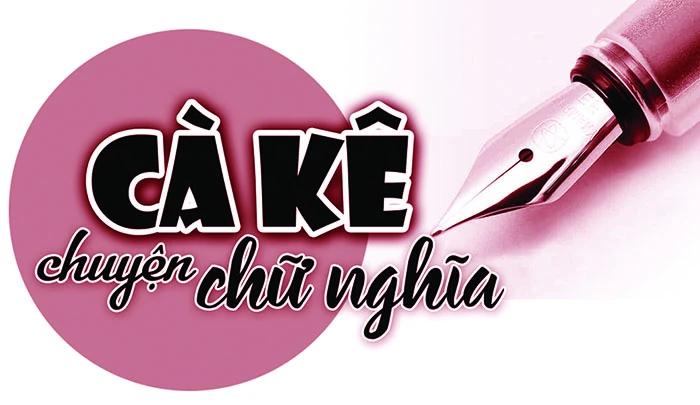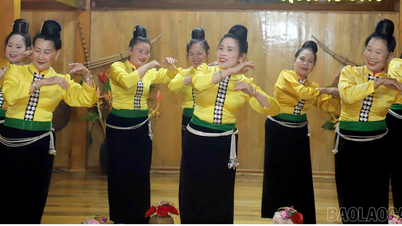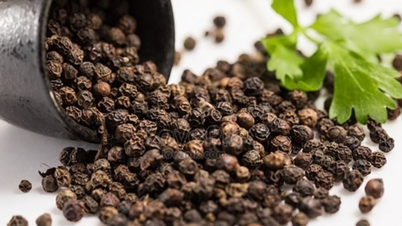In the section “Instructions on how to use the dictionary”, Prof. Dr. Nguyen Van Khang (NVK) said: This “Vietnamese spelling dictionary” was compiled based on the spelling treatment in the “Vietnamese Dictionary” of the Institute of Linguistics (Hoang Phe, editor-in-chief). However, in reality, NVK did not “process spelling” according to the mentioned document, but may have based it on a certain source of documents, leading to many errors. Occasionally, in articles about spelling posted in the “Cà ke truyện chữ nghĩa” column, we have corrected those serious spelling errors. In this article, we continue to point out the error in the entry for the word “giơ”.
The "raise" section of NVK's dictionary instructs as follows:
“giội: The wheel axle is raised (= loose) // loose. → do not write: dirty, loose”.
Thus, as NVK's dictionary instructs, when describing a machine part that no longer fits tightly with another part, it is okay to write "bi gio" or "bi rom"; but when talking about a tacit agreement or understanding with each other, there is only one way to write "an gio", not "an mut" or "an rom".
However, the dictionary's “gôi” entry has two spelling mistakes and two incorrect instructions:
1. If you want to say that parts and details no longer fit together, you must write "RO" (loose), not "GIƠ".
“Rơ” is a word of French origin, do jeu means looseness, rattling, not tight, due to wear and tear through operation and use. Vietnamese dictionary (Hoang Phe - Vietlex) explains: “rơ [Fr: jeu] t. [a part in a machine] no longer fits tightly with other parts. loose axle ~ loose wheel”.
2. If "an gio" means to eat dirty (eg: eat dirty, live dirty), then it must be written as "dirty" (eat dirty; Dirty as a crab entering a crab's hole - Idiom).
3. If “an heo” means to tacitly agree with each other, or to be in agreement, to coordinate well with each other, then it must be written as rô. “Rơ” in “an heo” is also a word of French origin (jeu = play, game).
Vietnamese Dictionary (Hoang Phe - Vietlex) explains: “to be in harmony • to have a tacit agreement with each other, to come to a consensus in action [often used in a negative sense]. The accountant is in harmony with the director to withdraw public money • t.[kng] to be in harmony with each other, to create good coordination in action and speech. The two people act very well together. Dn: in harmony”.
Thus, writing “bi gio” or “an gio” as NVK’s Vietnamese Spelling Dictionary instructs is incorrect. Accordingly, the correct spelling should be “bi ro” (not in harmony), “an duc” (dirty food) and “an rot” (tacit agreement; good coordination).
Man Nong (CTV)
Source: https://baothanhhoa.vn/chinh-ta-gio-va-ro-259497.htm




![[Photo] General Secretary To Lam attends the 80th anniversary of Vietnam's diplomacy](https://vphoto.vietnam.vn/thumb/1200x675/vietnam/resource/IMAGE/2025/8/25/3dc715efdbf74937b6fe8072bac5cb30)








































































































Comment (0)